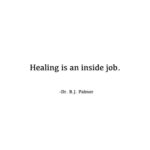Being an American means that there is a good chance you aren’t getting enough sleep. Work, finances, and family matters take up most of our time. Add in the hours we spend each day staring at a laptop, phone, or the 4K Ultra HD TV mounted on the wall of the family room, and it’s fair to say we are not getting enough sleep.
Consider the following:
- In a 2013 Gallup poll, 40% of Americans reported getting less than six hours of sleep per night. 59% reported getting seven or more hours of sleep per night, which is an hour less than what people sleep in the 1940s, and two hours less than what the average American reported back in 1910.
- In 2014, the CDC named sleep deprivation as a public health epidemic, with more than 70 million Americans suffering from a sleep disorder of some kind.
- 24 hours of sleep deprivation is the equivalent to driving with a 0.1 blood alcohol limit. With the National Highway Traffic Safety Administration reporting 1,550 deaths and 40,000 injuries a year caused by drowsy driving, getting behind the wheel is the last thing any of us should do if we’re sleep deprived!
- Sleep deprivation negatively impacts long- and short-term memory, along with our ability to think and concentrate. Depression and anxiety spike during these sleep-deprived states, as well.
- Sleep deprivation exponentially increases the risk for heart disease. Too little sleep for too many years will not only increase blood pressure, but increase the production of inflammatory chemicals that contribute to heart disease.
- When we sleep, our insulin regulates our blood sugar, and our cortisol levels stay low. Too little sleep keeps our cortisol and blood sugar levels high, increasing weight gain and the risk for type 2 diabetes, respectively.
We spend a third of our life sleeping, so it only makes sense that we give this part of our life the same care and attention we give the other two-thirds of our life.
Consider making some of the following changes for a more restful night’s sleep:
1.) Turn off all electronics two hours before bed. Ultraviolet light from the sun is the main source of blue light, and it keeps us attentive and focused throughout the day. When the sun sets, the absence of blue light allows for the production of melatonin, making us sleepy. Staring at blue light-emitting screens late into the night hinders melatonin production, making quality sleep difficult to achieve and maintain.
2.) Exercise. Studies have shown that some form of aerobic activity three to five days a week improves the quality of sleep at night.
3.) Meditate daily. A study in the JAMA Internal Medicine in April 2015 revealed that mindful meditation of 20 minutes daily was vastly superior at solving sleep disturbances than a mindful awareness program that only taught about meditation and mindfulness. Start with just five minutes a day of meditation in your favorite quiet place, and work your way up from there.
This article originally appeared in the December 10th edition of the Maricopa Monitor.












